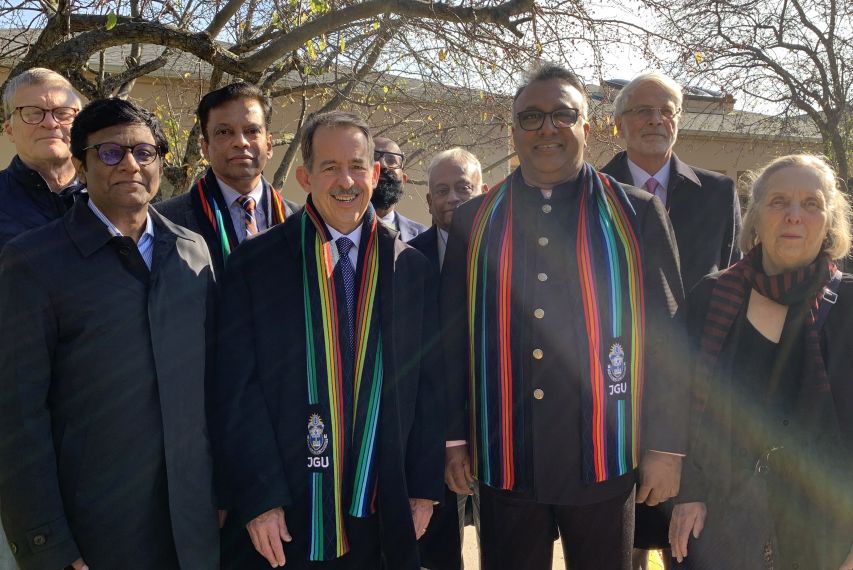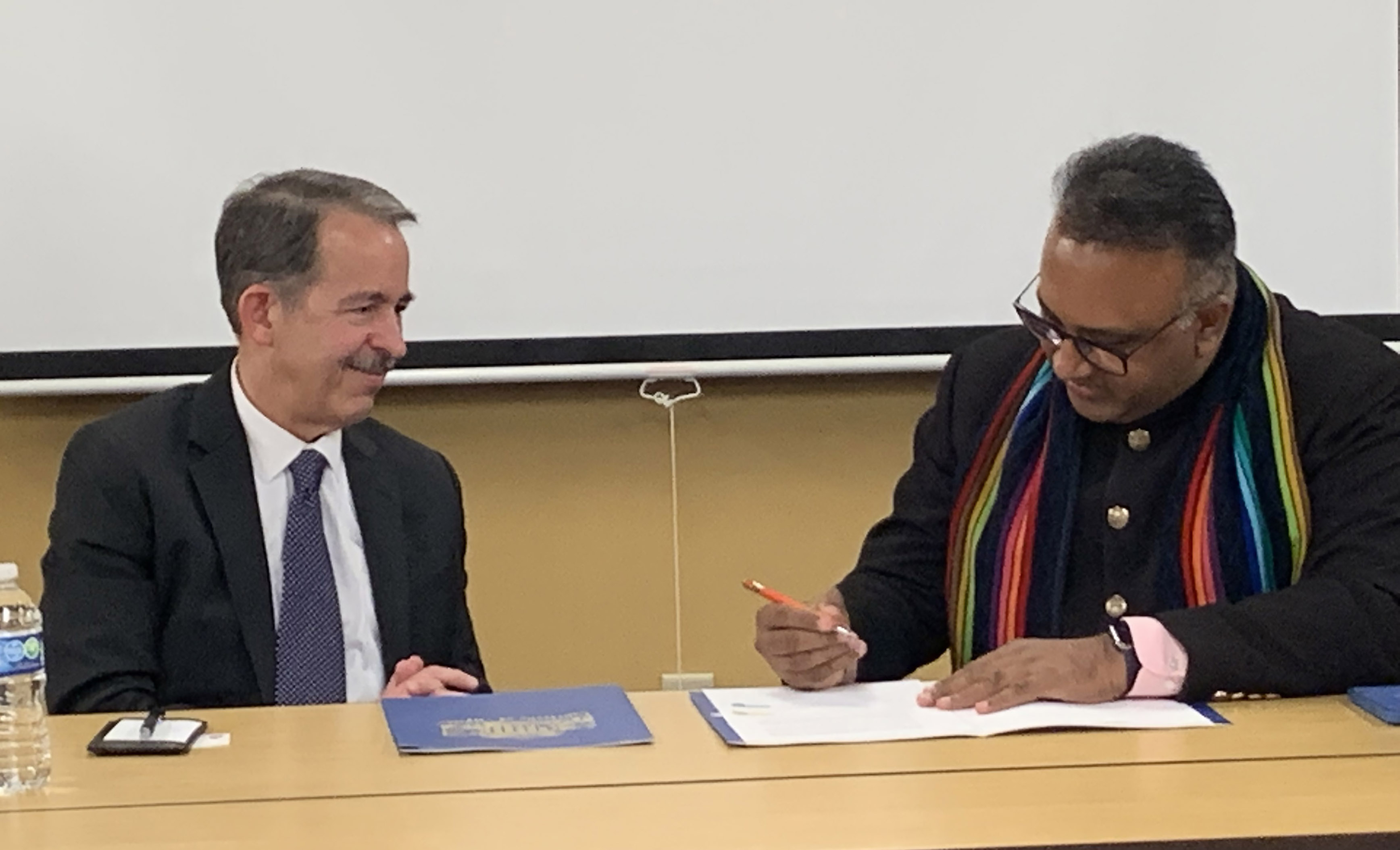The University of Virginia has inaugurated a new partnership with Jindal Global University (JGU) – one of India’s leading private universities located near New Delhi – to provide a significant new platform for student and scholar exchange, joint research on topics of global importance such as democracy and environmental sustainability, and a general expansion of UVA’s engagement in India.
UVA Provost Ian Baucom and JGU Vice Chancellor Raj Kumar signed a Memorandum of Understanding (MOU) committing to the partnership during Kumar’s visit to Charlottesville during the week of November 14 with five of JGU Deans and other senior staff. The document will serve as a foundation for more agreements between UVA and JGU schools and institutes to support student exchanges, joint research and symposia, and other collaborative activities.
Baucom said that JGU emerged as an attractive partner because of our common values of public service, academic freedom, and strong interdisciplinarity in preparing our students to be productive members of society. “Jindal’s commitment to building a strong liberal arts core and focus on combining its students’ academic achievement with practical experience is particularly noteworthy and will offer our students and scholars rich opportunities,” he said.





